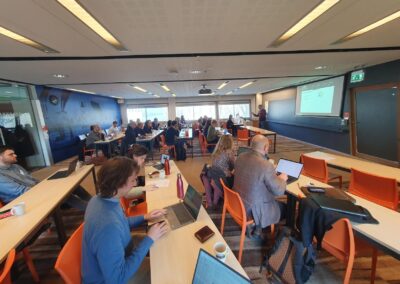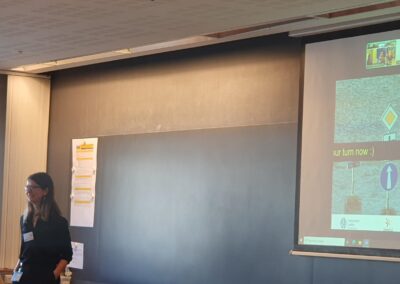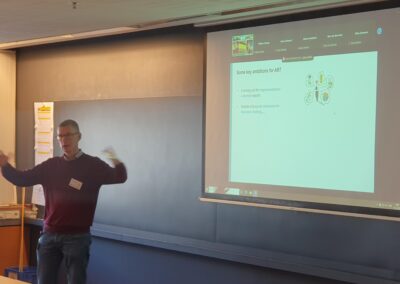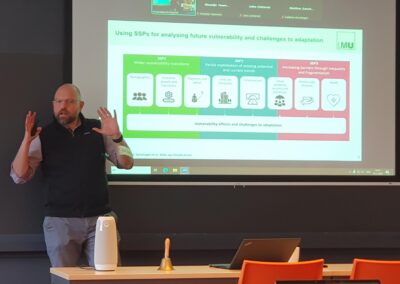SPARCCLE Researcher Marina Andrijevic Leads the Organisation of the ‘Adaptation Pathways and Scenarios for Climate Change Research’ Workshop
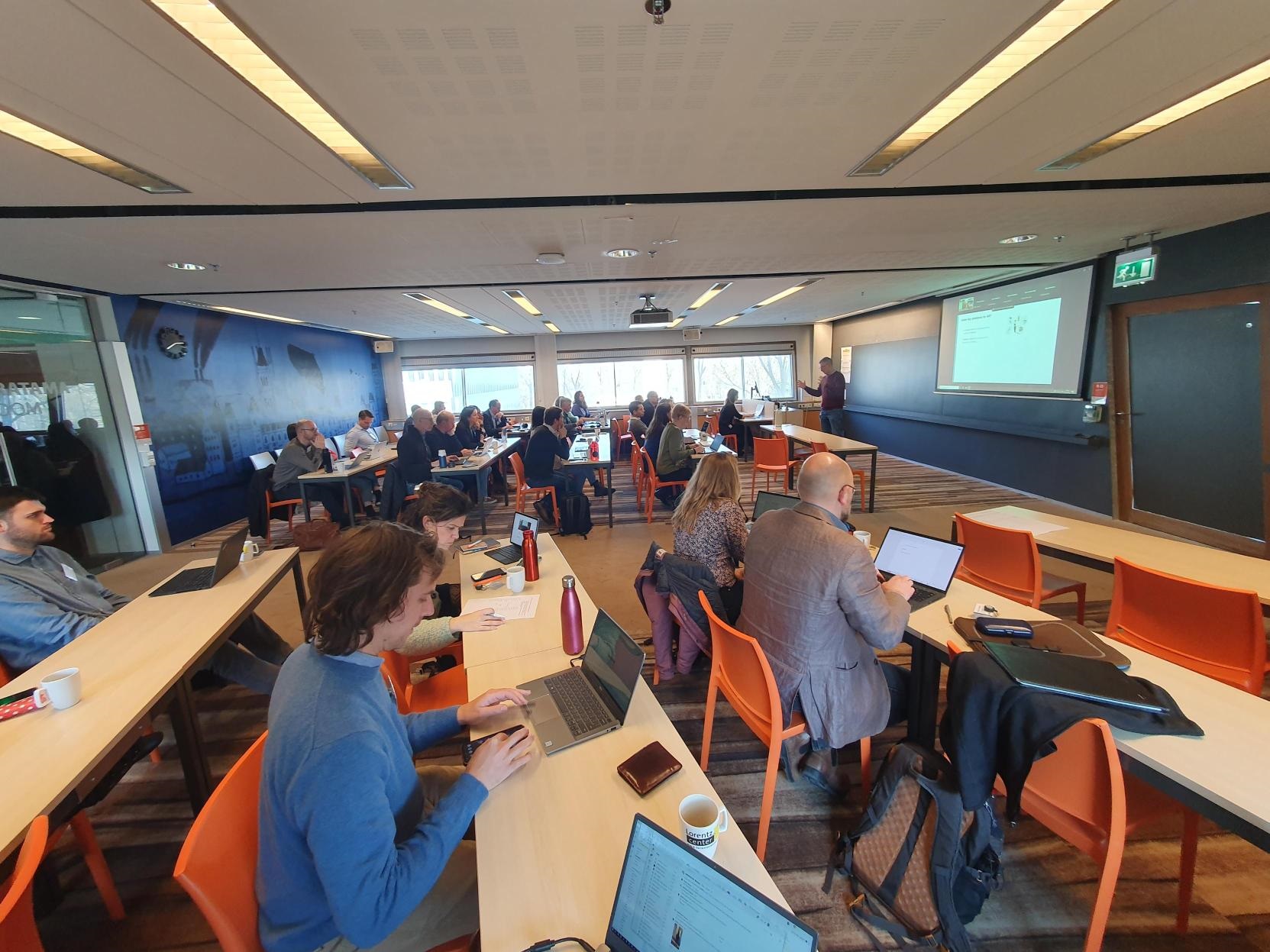
Adaptation to climate change is becoming increasingly urgent, yet global assessments still struggle to answer pressing questions: Where will adaptation be most needed? Which actors must adapt, and what barriers stand in the way? These challenges were at the heart of the ‘Adaptation Pathways and Scenarios for Climate Change Research’ workshop, held from 17th to 21st February at the Lorentz Center in Leiden, Netherlands. Co-organised by SPARCCLE researcher Marina Andrijevic, the workshop brought together around 40 interdisciplinary experts to collaboratively develop tools and bridge knowledge gaps. Five researchers from the SPARCCLE project participated.
Key Objectives and Activities
The workshop was centered around two primary objectives:
- Developing scenario-embedded adaptation pathways. Participants worked to develop new adaptation pathways and explore how they could be integrated into the widely used Shared Socioeconomic Pathways (SSPs) and Representative Concentration Pathways (RCPs) framework.
- Defining quantification needs to enhance the integration of adaptation dimensions into Integrated Assessment Models (IAMs) and climate impact assessments.
Through structured breakout groups, participants collaborated on:
- Establishing key organising principles for adaptation strategies (e.g., flexibility, accountability, timeframe, speed, and spatial scale).
- Developing generic pathways for thematic areas, including agriculture, health, water, and coasts.
- Exploring various SSP-RCP combinations to assess adaptation feasibility in different socioeconomic contexts. Comparisons between developed and developing regions helped identify key challenges and opportunities.
The workshop also featured expert presentations, including contributions from Bart van den Hurk, co-chair of the Working Group II of the IPCC, as well as updates on the Scenario Model Intercomparison Project (ScenarioMIP) process by Keywan Riahi and Detlef van Vuuren, and national adaptation pathways applications from New Zealand, Finland, and Mali. Additionally, the workshop focused on the model perspective, especially with respect to water, health, agriculture and coasts, as well as opportunities for development in the integrated assessment models.
Outcomes and Next Steps
The workshop successfully advanced policy-relevant research by developing adaptation pathways and proposing ways to integrate them in the scenario framework. A key outcome was the identification of at least eight research articles to be developed for a special issue of a journal, continuing the momentum of the discussions and aiming to feed into broader ongoing processes such as ScenarioMIP, the 7th Assessment Report cycle of the Intergovernmental Panel on Climate Change, and EU-wide adaptation planning led by DG-CLIMA.
